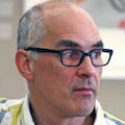Eight professors receive Kellett Mid-Career Awards
Eight outstanding faculty members at the University of Wisconsin–Madison have been named winners of this year’s Kellett Mid-Career Awards.
The Kellett award, supported by the Wisconsin Alumni Research Foundation, recognizes outstanding mid-career faculty members who are five to 20 years past the first promotion to a tenured position. Each winner, chosen by a Graduate School committee, receives a $60,000 flexible research award.
The award is named for William R. Kellett, a former president of the WARF board of trustees and retired president of Kimberly-Clark Corp.
This year’s recipients are:
Amy Quan Barry, professor of English, is the author of three books published by the University of Pittsburgh Press, and her work has appeared in publications such as Ms. and The New Yorker. Among her awards are an NEA Fellowship, a Pushcart Prize, and a Wallace Stegner Fellowship at Stanford University. She is currently at work on a novel.
Emery Bresnick, professor of cell and regenerative biology, is an expert on epigenetics and the development and function of blood cells. Alongside his research, he organizes campuswide hematology and vascular biology research groups, co-directs the Hematology Training Program, serves as chair of the Red Cell Committee of the American Society of Hematology, and has developed a new course on the fundamentals of stem cell and regenerative biology.
Menzie Chinn, professor in the La Follette School of Public Affairs, focuses his research on international finance and macroeconomics. He is currently a co-editor of the Journal of International Money and Finance, and coauthored a book, “Lost Decades,” published in 2011. Chinn is a member of the Congressional Budget Office Panel of Economic Advisers, and has served on the President’s Council of Economic Advisers and as a visiting scholar at the International Monetary Fund.
Mark Eriksson, professor of physics, conducts experimental research on quantum devices in silicon and silicon-germanium, with potential applications in quantum information processing. He serves on the executive committee of the Wisconsin Center for Applied Microelectronics, and trains graduate students in the field of quantum devices while teaching graduate and undergraduate courses in physics.
Stephen Kantrowitz, professor of history, studies race and politics in the 19th-century United States, is currently exploring questions of Native American citizenship in the Civil War era. His most recent book is “More Than Freedom: Fighting for Black Citizenship in a White Republic, 1829-1889,” published in 2012.
Douglas Rosenberg, professor of art, has shown work in video and video installations around the world. His most recent film premiered at Lincoln Center in January. His book “Screendance: Inscribing the Ephemeral Image,” was published in 2002, and he is at work on a handbook of Screendance Studies.
James Jay Schauer, professor of civil and environmental engineering, studies the use of advanced chemical analysis tools to understand the sources and impacts of air pollutants with a focus on urban air pollution, human health and climate change. He serves as director of the Water Science and Engineering Laboratory and program director for the Wisconsin State Laboratory of Hygiene.
Dhavan Shah, Louis A. & Mary E. Maier-Bascom professor of journalism and mass communication, with appointments in the departments of Industrial and Systems Engineering and Political Science. He focuses his research on the effects of information and communication technologies on social judgments, civic engagement and health management. His recent work extends insights on message processing and networked communication to the use of information technologies for chronic disease care.


